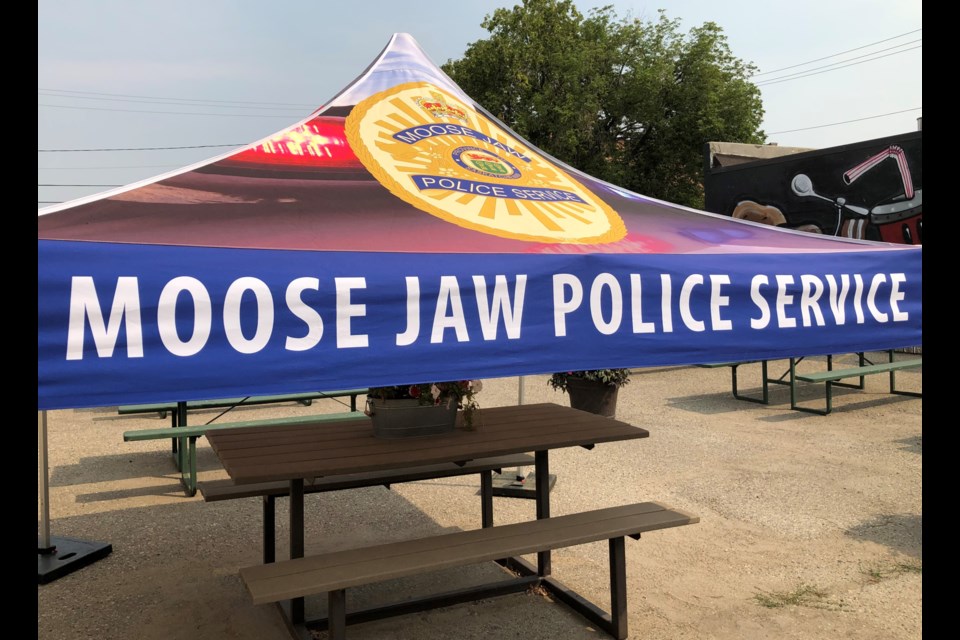MOOSE JAW — The Moose Jaw Police Service (MJPS) has launched a new recruitment strategy to help fill a dozen positions that opened recently because of either extra provincial funding or retirements and departures.
The police service’s authorized strength was 64 officers, but that number increased to 72 due to the Ministry of Policing and Corrections funding eight new front-line positions. Moreover, the agency recently had four members retire or leave, which brings the total number of vacancies to 12.
Currently, the agency has 60 officers working.
Acting Supt. Cam Lewis spoke about the MJPS’s recruitment strategy during the recent Board of Police Commissioners’ meeting and explained the provincially mandated process the agency uses to select new officers.
Candidates apply, then take an entrance exam, perform a physical abilities test, take a medical exam, have an interview, undergo psychological testing, take a polygraph examination, provide proof of citizenship and undergo security/background checks.
The lucky few are given an offer of employment and speak with Police Chief Rick Bourassa, who determines whether “he likes the cut of their jib,” Lewis joked.
“It is a long process,” he said.
Meanwhile, he noted that he took on this portfolio in September and hoped to offer conditional employment letters to candidates by mid-November. The proposals are conditional because candidates must complete a second physical abilities test within 60 days of the offer.
Once the candidates are hired, the agency provides them with clothing and equipment so they can attend the Saskatchewan Police College (SPC).
The MJPS’s short-term goal is to hire four new officers who can begin in January, which would increase the agency’s authorized strength to 64. Meanwhile, its long-term goal is to hire eight new provincially funded officers in 2025.
The agency anticipates that it will have a natural attrition rate among officers based on 10-year averages that show that it hires three new officers annually, said Lewis.
Therefore, the organization expects to hire five to six officers by next spring who will begin training and employment in July, while it expects to hire another five to six members next fall who will likely start training and working in January 2026.
However, police services across Canada are seeing a reduction in applicants, Lewis said. For example, about 20 people have applied to the MJPS during the past few years, while conversely, more than 300 used to apply about 25 years ago.
“I can only make guesses about why that is, but it’s just the current environment and perceptions impacting that. So … we are having to recognize that we need to be very proactive in recruitment here,” he stated.
Lewis added that the MJPS plans to renew its recruitment focus by visiting colleges and universities, attending career fairs, increasing its advertising, and analyzing past hiring trends to determine where it found its current members.
Police leadership told the board that candidates must be over age 19 and have a high school diploma. Even though high schoolers are too young to join, the agency still attends career fairs and holds student-focused citizens’ academies to generate future interest.
Lewis acknowledged that while the MJPS can’t poach officers from other services, it can speak with them should they reach out. He noted that such people may want to join the agency because they are from Moose Jaw or have family here.
Also, it’s good to have a mix of officers who are homegrown and from elsewhere since the former are familiar with the community’s culture while the latter bring different perspectives, Lewis added.
Commissioner Doug Blanc pointed out that other municipal police services will also be sending their recruits to the SPC for training — the province funded 100 new positions — so he wondered if the MJPS would acquire the necessary training spaces or be shut out.
There is a provincial training advisory committee that meets to discuss issues like that, said Bourassa. Currently, agencies’ requests for training spaces are exceeding the college’s capacity, so the MJPS must wait until January to learn whether it will receive four spots.
Police chiefs are working with the college to determine what a new educational model could look like after the province gave it more funding to increase its training seats, the board heard. However, the college will need to hire more instructors and work out other issues in the coming months.




